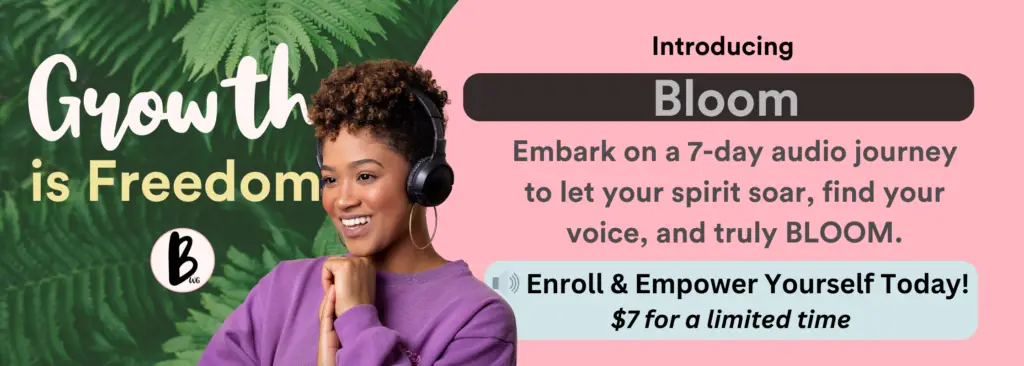Mental health is vital for everyone, but Black women face unique challenges that make it even more important to prioritize it. From systemic racism to cultural expectations, many factors can affect mental well-being. This article aims to provide resources and strategies that can help Black women navigate their mental health journeys. By understanding these challenges and embracing self-care, we can empower ourselves and each other to seek the help we deserve.
Table of Contents
Key Takeaways
- Mental health is crucial and should not be overlooked, especially in the Black community.
- Cultural stigma can make it hard for Black women to seek help, but asking for support is a sign of strength.
- Self-care activities like exercise, mindfulness, and connecting with loved ones are essential for mental wellness.
- Accessing mental health resources can be challenging, but there are options available, including therapy and support groups.
- Prominent advocates and voices in the Black community are working to break down barriers and raise awareness about mental health.
Understanding Mental Health Challenges in the Black Community
Mental health is a vital part of overall well-being, yet it is often overlooked in the Black community. Black individuals face unique stressors that can lead to mental health issues, such as anxiety, depression, and PTSD. These challenges are often worsened by stigma and limited access to resources.
Impact of Systemic Racism on Mental Health
Systemic racism can create a heavy burden on mental health. It can lead to feelings of hopelessness and anxiety. Here are some key points:
- Racism can cause chronic stress.
- Discrimination can lead to feelings of isolation.
- Lack of representation in mental health fields can make it hard to find culturally competent care.
Historical Trauma and Its Effects
Historical trauma refers to the collective pain experienced by Black communities due to centuries of oppression. This trauma can manifest in various ways:
- Increased rates of mental health disorders.
- Difficulty in trusting mental health professionals.
- A cycle of trauma that affects future generations.
Stigma Surrounding Mental Health in Black Communities
Stigma can prevent individuals from seeking help. Many believe that asking for help is a sign of weakness. This can lead to:
- Hesitation to talk about mental health issues.
- Fear of being labeled as “crazy.”
- A culture of silence around mental health struggles.
Understanding these challenges is the first step toward healing. It is essential to create a supportive environment where Black individuals feel safe to discuss their mental health.
By recognizing the unique mental health challenges faced by the Black community, we can work towards better support and resources. This includes promoting culturally competent care and encouraging open conversations about mental health.

Overcoming Barriers to Mental Health Care for Black Women
Addressing Cultural Sensitivity in Therapy
Many Black women face challenges when seeking mental health care due to a lack of culturally competent providers. Finding a therapist who understands the unique experiences of Black women is crucial. This can help create a safe space for healing. Here are some ways to address this issue:
- Look for therapists who specialize in cultural competence.
- Seek recommendations from friends or community groups.
- Utilize online directories that focus on diverse providers.
Navigating Financial Constraints
Financial issues can make it hard for Black women to access mental health services. Many may not have insurance or can’t afford therapy. Here are some options to consider:
- Look for sliding scale therapists who adjust fees based on income.
- Explore community health centers that offer low-cost services.
- Check for grants or programs specifically for Black women seeking mental health support.
Breaking the Strong Black Woman Stereotype
The stereotype of the “strong Black woman” can prevent many from seeking help. It’s important to recognize that asking for help is a sign of strength, not weakness. Here are some steps to break this stereotype:
- Share personal stories to normalize seeking help.
- Encourage open discussions about mental health in your community.
- Support initiatives that promote mental wellness among Black women.
Seeking help is a vital step towards mental wellness. By overcoming these barriers, Black women can find the support they need to thrive. Remember, you are deserving of care and support.
This guide aims to shed light on the state of Black mental health, provide resources, and empower individuals to find affordable support and care they deserve.
Self-Care Strategies for Mental Wellness
Taking care of our mental health is crucial, especially for Black women who face unique challenges. Here are some effective self-care strategies:
Physical Self-Care Activities
- Get enough sleep: Aim for at least seven hours each night. Sleep helps stabilize your mood and improves overall health.
- Stay active: Try to exercise for 30 minutes daily. This can boost your mood and help manage stress.
- Eat well: A balanced diet with fruits, vegetables, and proteins can keep your energy steady throughout the day.
Emotional Self-Care Practices
- Connect with others: Spend time with friends or family. Social support is vital for reducing stress and improving mental health.
- Set boundaries: Learn to say no to things that overwhelm you. Protecting your time is essential for self-care.
- Practice mindfulness: Engage in activities like meditation or deep breathing to help calm your mind.
Incorporating Mindfulness and Meditation
- Mindfulness exercises: Take a few minutes each day to focus on your breath or surroundings. This can help ground you in the present moment.
- Meditation: Consider taking a class or using an app to guide you through meditation practices.
- Reflect: Spend time journaling about your feelings and experiences. This can help you process emotions and gain clarity.
Self-care is not selfish; it’s a necessity. By prioritizing our needs, we can better support ourselves and those around us.
Remember, self-care can look different for everyone. It’s about finding what works best for you and making it a priority in your life. For Black women, engaging in self-care can be a powerful way to combat stress and improve mental health. Consider exploring resources like self-care for Black women: 150 ways to radically accept yourself, which offers tailored exercises to enhance your well-being.
Resources and Support Networks

Therapy and Counseling Services
Finding the right support is crucial for mental health. Here are some options for therapy and counseling services:
- Culturally competent therapists who understand the unique experiences of Black women.
- Community mental health centers that offer affordable services.
- Online therapy platforms that provide access to licensed professionals.
Support Groups and Community Programs
Support groups can be a great way to connect with others facing similar challenges. Consider:
- Local organizations that focus on Black mental health.
- Online forums where you can share experiences and advice.
- Workshops that promote mental wellness and community support.
Online Resources and Apps
In today’s digital age, there are many online resources available:
- Mental health apps that offer guided meditations and coping strategies.
- Websites that provide information on mental health specifically for Black women.
- Social media platforms where advocates share tips and resources.
Connecting with the right resources can empower you to prioritize your mental wellness.
For example, the Black Therapist Directory is a valuable tool that helps individuals find culturally competent mental health care. This directory emphasizes the importance of tailored support for Black women, ensuring they connect with therapists who understand their unique experiences.
By utilizing these resources, Black women can find the support they need to navigate their mental health journeys effectively.
Prominent Voices and Advocates for Black Mental Health

Influential Black Therapists and Psychologists
Many Black therapists and psychologists are making a significant impact in the mental health field. They advocate for culturally relevant practices and work to dismantle the stigma surrounding mental health in the Black community. Their voices are crucial for change.
Some notable figures include:
- Dr. Thema Bryant, known for her work in trauma and resilience.
- Dr. Joy Harden Bradford, founder of Therapy for Black Girls.
- Dr. Kevin Cokley, who focuses on racial identity and mental health.
Celebrities Speaking Out on Mental Health
Celebrities play a vital role in raising awareness about mental health issues. Their openness can inspire others to seek help. Some prominent figures include:
- Taraji P. Henson, who founded the Boris Lawrence Henson Foundation to combat stigma.
- Michelle Williams, who has openly discussed her struggles with depression.
- Lil Wayne, who has shared his experiences with mental health challenges.
Podcasts and Media Focused on Black Mental Wellness
Podcasts and media platforms are essential for spreading awareness and providing resources. They offer a space for discussions about mental health in the Black community. Some popular options are:
- Therapy for Black Girls Podcast
- Balanced Black Girl Podcast
- The Homecoming Podcast with Dr. Thema
These platforms not only provide information but also foster a sense of community and support.
In summary, the contributions of these advocates and resources are vital for promoting mental health awareness and support within the Black community. Their efforts help to create a more inclusive and understanding environment for all.
The Role of Nutrition and Lifestyle in Mental Health
Healthy Eating for Mental Wellness
Eating well is crucial for maintaining good mental health. What you eat can significantly affect your mood and energy levels. Here are some tips for a balanced diet:
- Include plenty of fruits and vegetables in your meals.
- Choose whole grains over processed foods.
- Incorporate healthy fats, like those found in fish and nuts.
| Food Type | Benefits |
|---|---|
| Fruits and Veggies | Rich in vitamins and minerals |
| Whole Grains | Steady energy levels |
| Healthy Fats | Supports brain function |
Exercise and Physical Activity
Regular physical activity is another key factor in mental health. Aim for at least 30 minutes of exercise most days. Here are some activities to consider:
- Walking or jogging
- Dancing or aerobics
- Yoga or stretching
The Importance of Rest and Sleep
Getting enough sleep is essential for mental wellness. Sleep helps your brain recover and function properly. Here are some tips for better sleep:
- Set a regular sleep schedule.
- Create a calming bedtime routine.
- Limit screen time before bed.
Taking care of your body through nutrition and lifestyle choices can lead to better mental health. Remember, small changes can make a big difference!
Coping with Stress and Anxiety
Developing Healthy Coping Mechanisms
Managing stress and anxiety is crucial for mental well-being. Here are some effective strategies:
- Practice mindfulness: Engaging in mindfulness can help you stay present and reduce anxiety. Meditation is a great way to start.
- Exercise regularly: Aim for at least 30 minutes of physical activity each day. This can boost your mood and help you feel more energized.
- Connect with others: Spend time with friends or family. Social support is vital for mental health.
Managing Work and Family Responsibilities
Balancing work and family can be overwhelming. Here are some tips to help:
- Set boundaries: Learn to say no to extra responsibilities that can add stress.
- Prioritize tasks: Focus on what’s most important and let go of less critical tasks.
- Ask for help: Don’t hesitate to reach out to family or friends when you need support.
Seeking Professional Help When Needed
Sometimes, professional help is necessary. Here’s why:
- Therapists can provide guidance: They can help you develop coping strategies tailored to your needs.
- Support groups offer community: Connecting with others who share similar experiences can be comforting.
- Medication may be an option: For some, medication can help manage symptoms effectively.
Remember, taking care of your mental health is not selfish; it’s essential. Prioritizing your well-being allows you to show up better for yourself and others.
Incorporating these strategies into your daily routine can significantly improve your ability to cope with stress and anxiety. By focusing on self-care, you can build resilience and enhance your overall mental health.
Feeling overwhelmed by stress and anxiety? You’re not alone. Many people face these challenges daily, but there are ways to cope and find peace. Explore helpful tips and resources on our website to start your journey toward a calmer, more balanced life. Don’t wait—visit us today!
Conclusion
In closing, it’s vital for Black women to prioritize their mental health. The challenges we face can be overwhelming, but seeking help is a sign of strength, not weakness. By using the resources available, such as therapy, support groups, and online tools, we can take steps toward better mental wellness. Remember, self-care is not selfish; it’s necessary. Taking time for ourselves helps us recharge and be there for our loved ones. Let’s continue to break the stigma around mental health in our communities and support one another in this journey. You deserve love, care, and the chance to thrive.
Frequently Asked Questions
What are some common mental health issues faced by Black women?
Black women often deal with stress, anxiety, and depression, which can be worsened by racism and societal pressures.
How can I find a therapist who understands my experiences?
Look for therapists who specialize in cultural competence or who are part of Black mental health organizations.
What are some self-care activities I can do?
You can try exercising, journaling, meditating, or spending time with friends to boost your mental health.
Is it okay to seek help for mental health issues?
Absolutely! Seeking help is a sign of strength, not weakness. Everyone deserves support.
How can I break the stigma around mental health in my community?
Talk openly about mental health, share your experiences, and encourage others to seek help.
What resources are available for Black women regarding mental health?
There are many resources, including online support groups, podcasts, and therapy services specifically for Black women.

